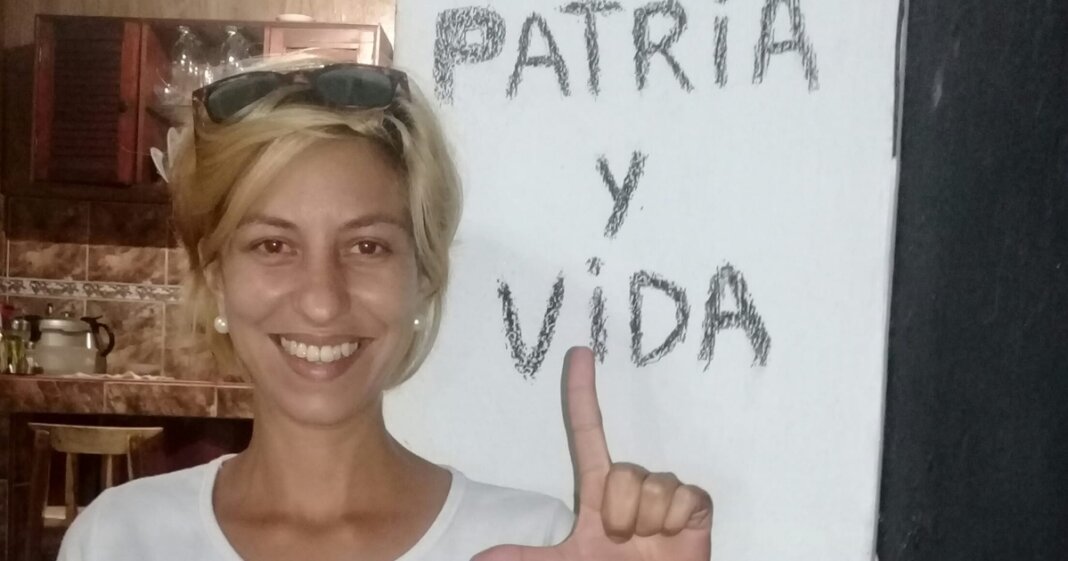Yenislais Hernández Lara, Diana Márquez Valdés and Misleydis González García were three of the Cuban women murdered by their ex-partners between 2017 and 2021. If their killers - and former abusers - had been peaceful protestors or independent journalists like those who demonstrated on the Calle Obispo perhaps they would be alive today.
These three victims of femicide had reported harassment, and even attacks, by their former partners. According to Hernández Lara's neighbors, despite her complaints of harassment "... those who handle these types of cases never paid much attention to it."
Misleydis González García's multiple complaints received the same response: nothing. The Police never responded.
Diana Márquez Valdés, initially, had "a little more luck." Her ex-partner assaulted her and was arrested when she reported him.
But he was released on parole shortly thereafter, and attacked her again. This time, Márquez Valdés did not survive.
Neither the murderer of Yenislais Hernández nor that of Misleydis González were temporarily detained as a precautionary measure. In fact, the Police did not even respond to the complaints the women had presented.
In the case of Diana Márquez's murderer, parole and the absence of restraining orders in Cuba allowed him easy access to his victim.
It is inevitable to compare the sluggish response by Cuban Police and prosecutors when dealing with batterers of women, with their severity when it comes to applying measures against activists, including mothers of young children, guilty of nothing but peacefully demanding their rights.
It is worth noting that provisional detention is the harshest precautionary measure with which people awaiting trial are secured, since it entails conditions similar to the actual fulfillment of a prison sentence .
The decision to impose it lies with the prosecutor in the investigative phase. The court may accept it, modify it or void it after the case file has been received. Defense attorneys can request another of the precautionary measures provided for under the law, such as house arrest , or bail.
The accused is also obligated to go before the authority with a certain frequency to demonstrate that they remain the territory in question, and to attest to their behavior. At each appearance they sign a certificate as proof. When a "moral bond" (fianza moral) is imposed a person, organization, union or state entity undertakes to ensure that the accused is released only on the condition of adequate conduct, that he not evade the action of criminal justice, and pledges to positively influence his behavior.
According to Article 252 of the Criminal Procedure Law in force, provisional detention may be applied whenever two circumstances concur: the existence of a crime, and reasons to link it to the person on whom the precautionary measure is imposed.
Its application, however, is exceptional. The others provided for by law are to be used if the events have not caused alarm, are not committed frequently in the territory, and there are no elements suggesting that the accused will seek to evade justice.
However, the imposition of this tough measure on participants in the peaceful April 30 protest on the Calle Obispo reveals how in Cuba its application is more selective than exceptional. The actions carried out by these young people did not produce any more alarm than that generated by the violence of the Police and State Security forces against them. None had criminal records, and there was no reason to think that they would evade justice.
If abusers of women like Diana Márquez Valdés' murderer were treated with the same strictness, perhaps fewer women would be killed by their ex-partners in Cuba.
The draft version of the new Criminal Procedure Law announces the inclusion of restraining orders as a new precautionary measure in cases of sexual crimes, gender violence and other forms of aggression. This is undoubtedly encouraging news, though coming too late. It seems, however, that under the new legislation the application of preventive detention will continue to be selective.
Article 356.1 states that the measure is exceptional and appropriate "provided that there are sufficient grounds to suspect that the accused is criminally responsible for the crime and any of the following circumstances apply: a) the serious nature of the crime; b) the possibility that he/she may hamper or obstruct the investigation, inquiry, trial or the execution of the sentence."
Prior to its imposition the need for it and its relevance are evaluated, the age of the individual, their state of health, family situation, vulnerability and any other circumstances relevant to him, or the charges in question, are evaluated. After it has been adopted, it requires ongoing review.
In the case of persons under 18 years of age this precautionary measure can only be imposed in cases involving serious criminal acts that have a social or economic dimension, or that affect the constitutional order of the country; or when for the execution of the crime the accused employed means or ways denoting a contempt for human life, representing a serious social risk, demonstrating notorious disrespect for the rights of others, or suggesting the possible repeated commission of criminal acts.
In Cuba, however, any demonstration against the Government, no matter how peaceful, apparently constitutes a violation of the constitutional order. Any protester, be they under 18 years of age, or even the mothers of small children, may be subject to provisional detention, and not to prevent "the hampering or obstruction of the investigation, the inquiry, trial or execution of the sentence," but rather to keep them from becoming an inspiration for the rest of the population.
